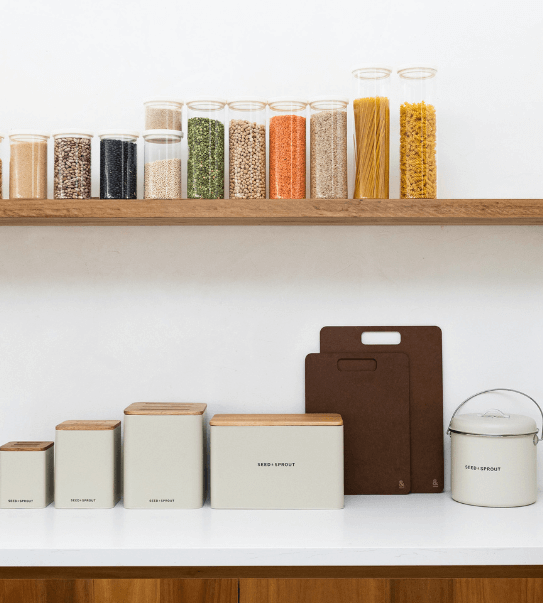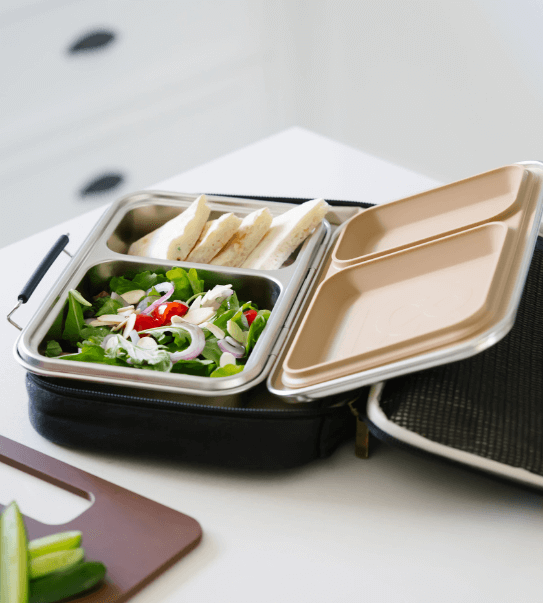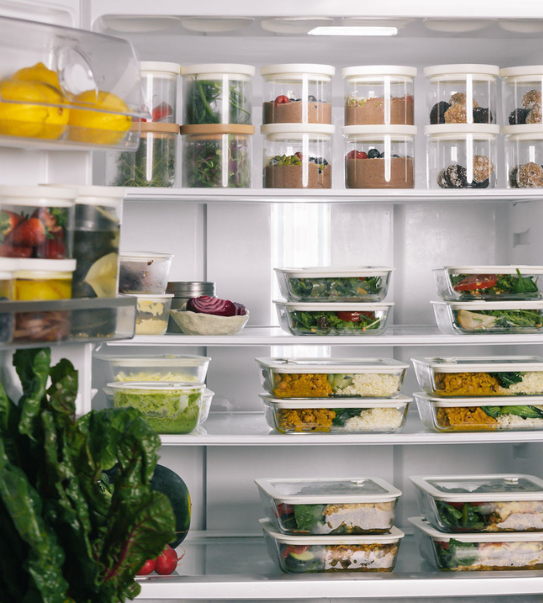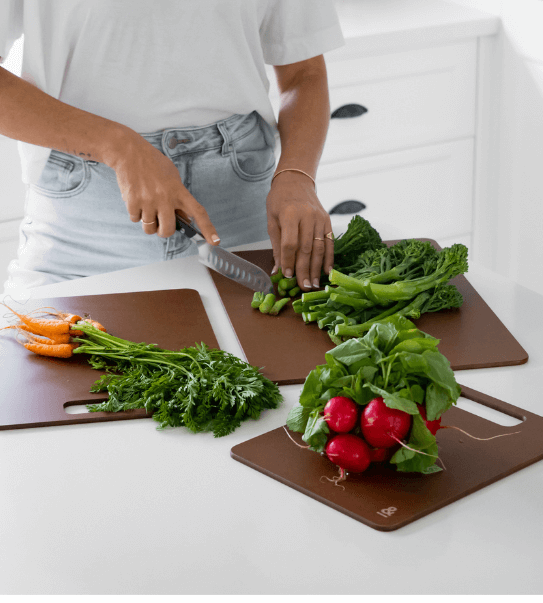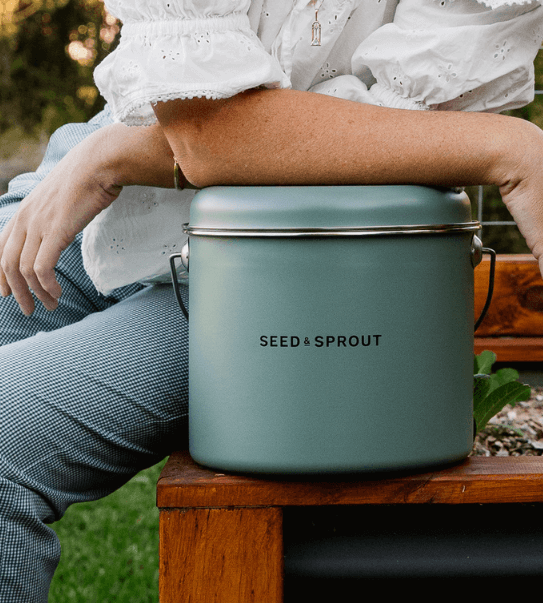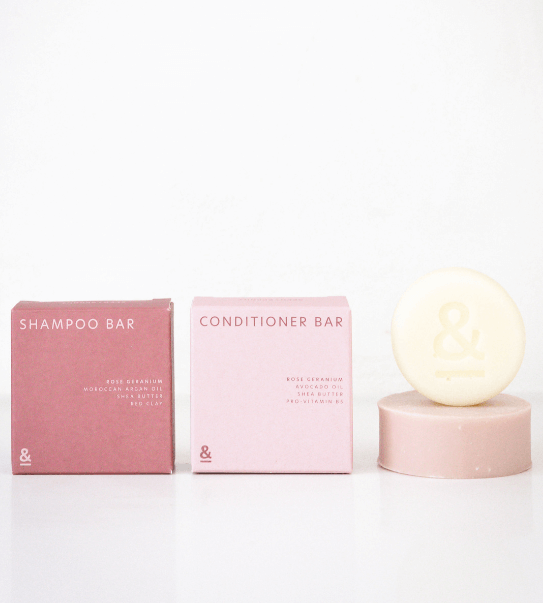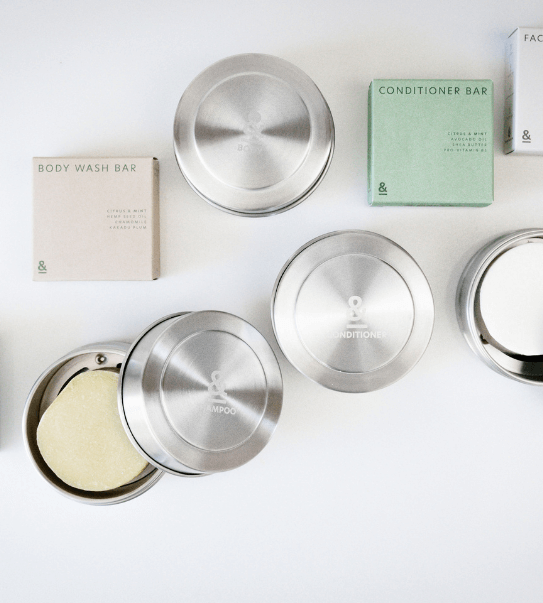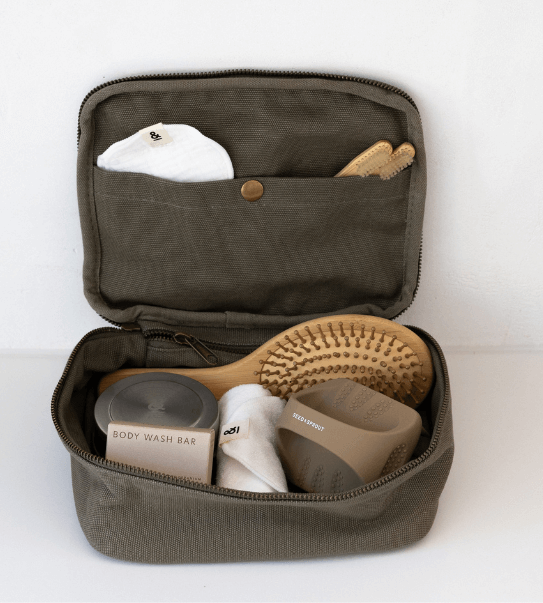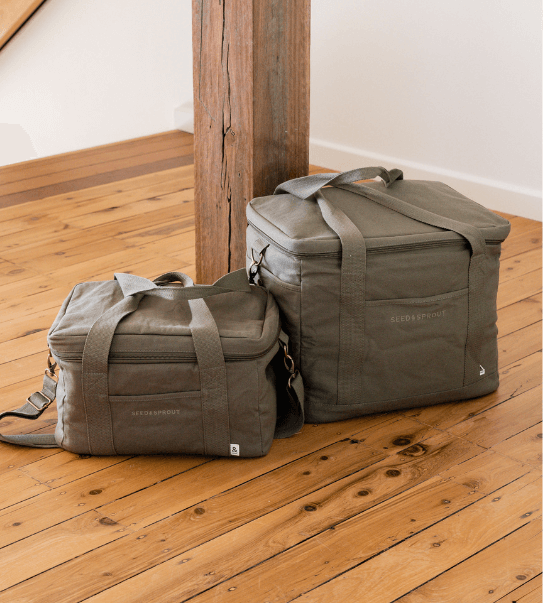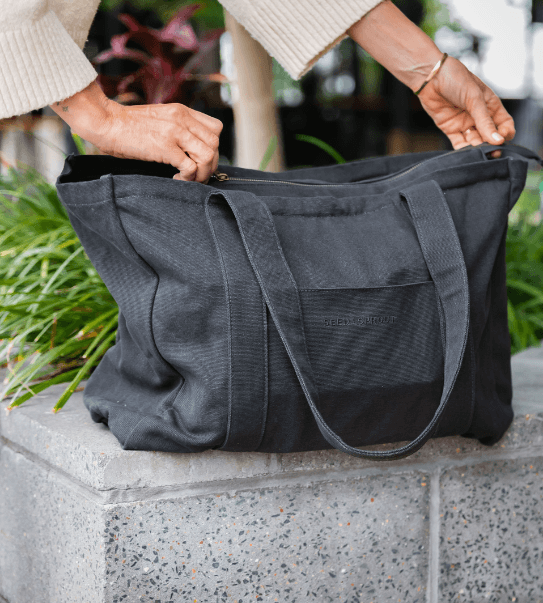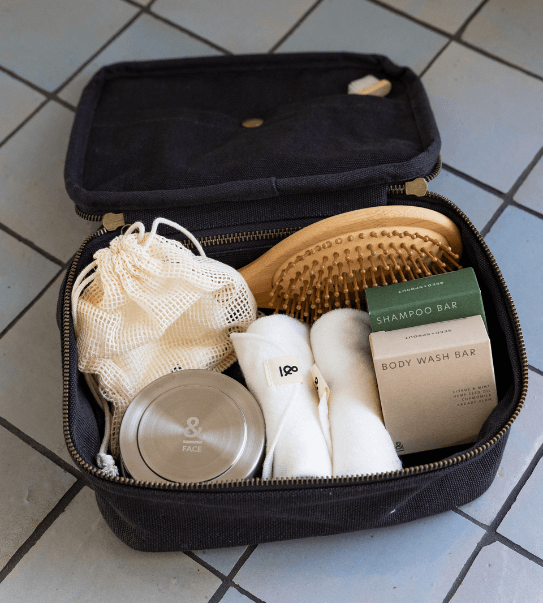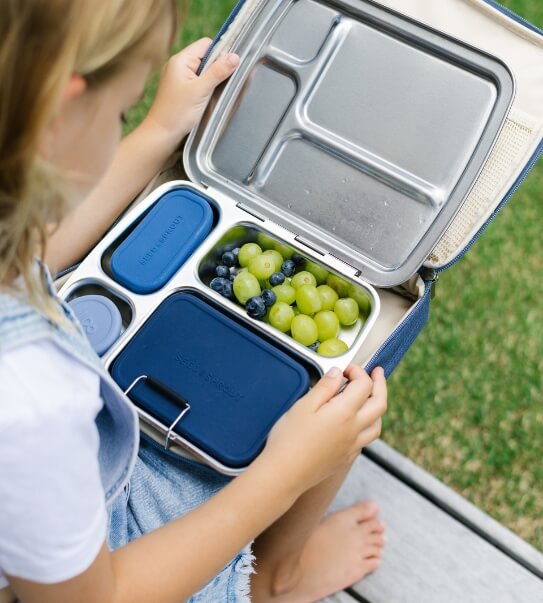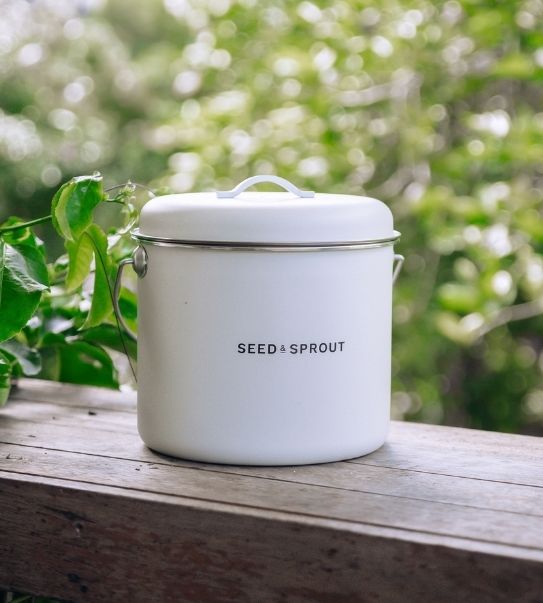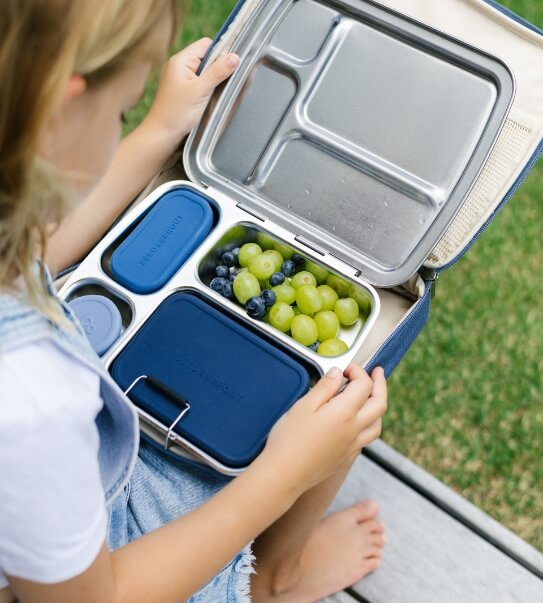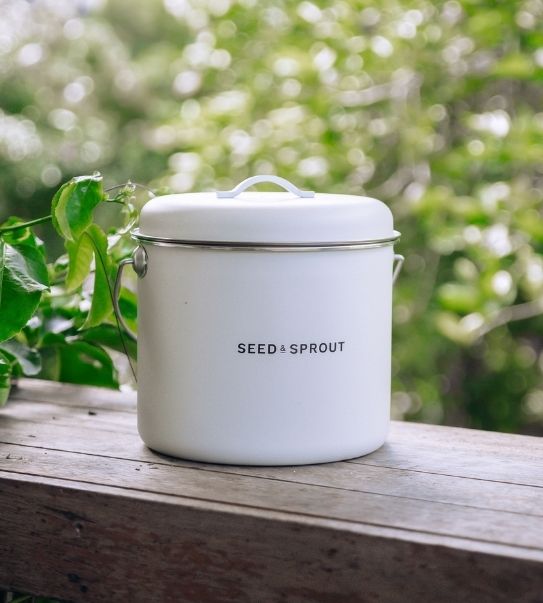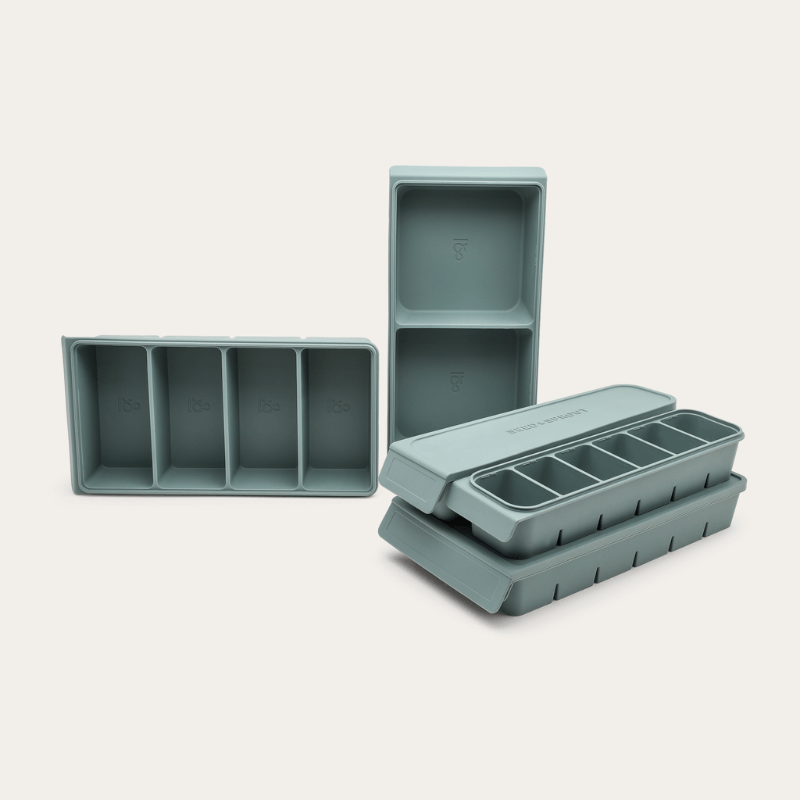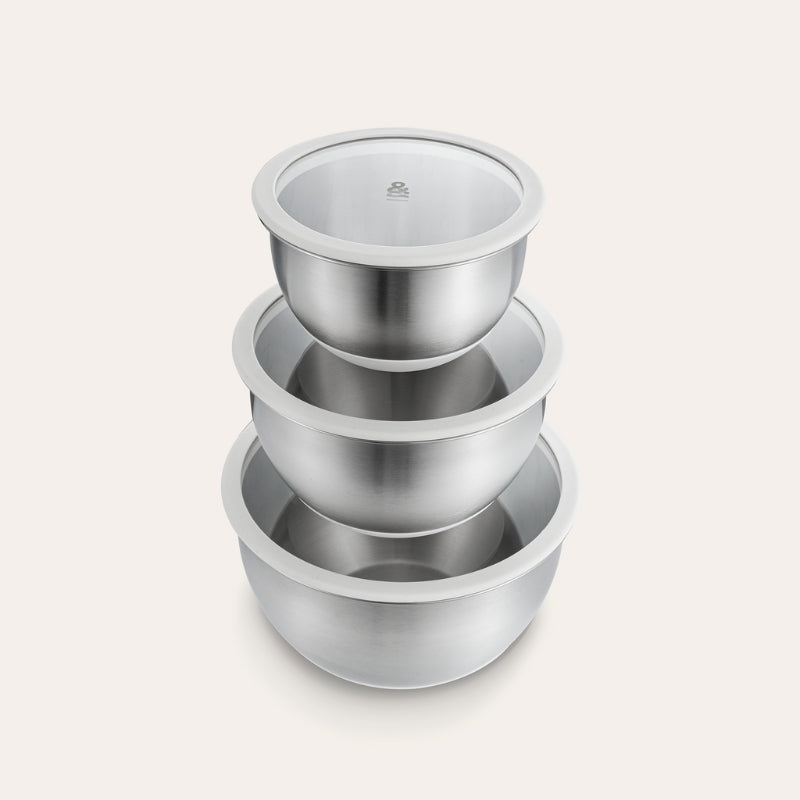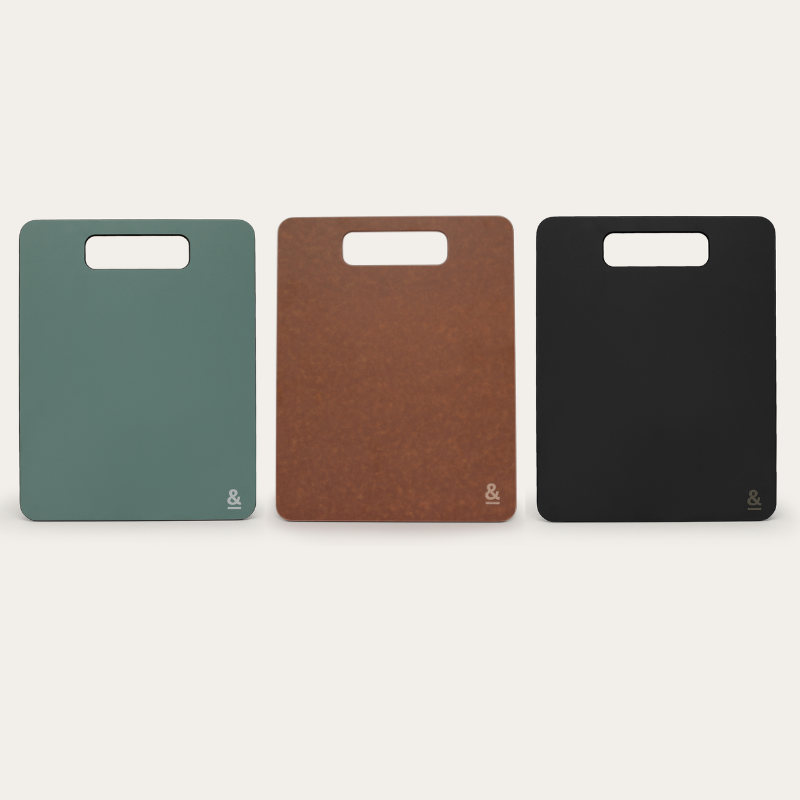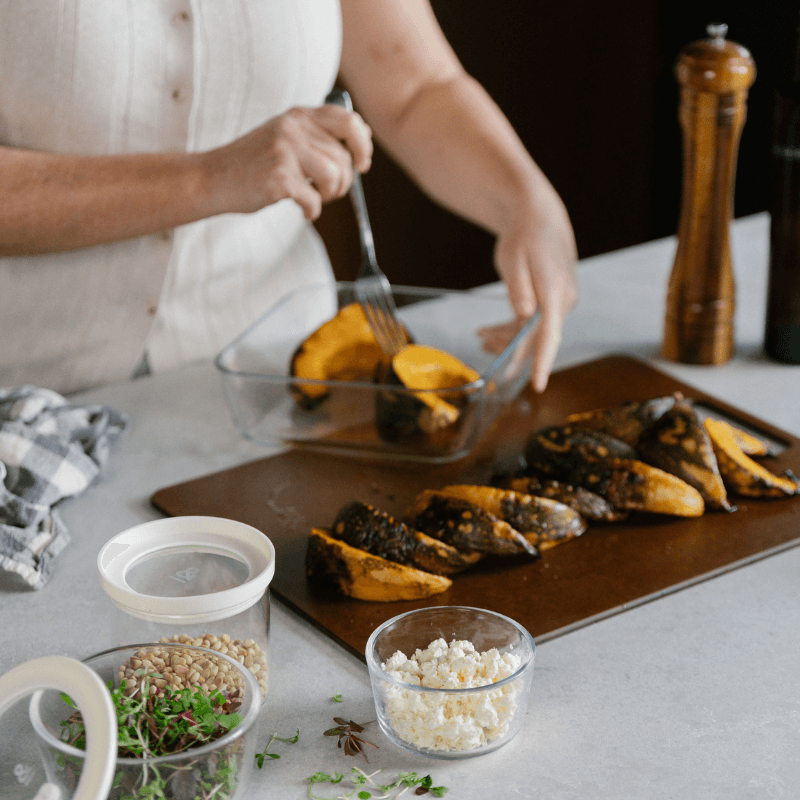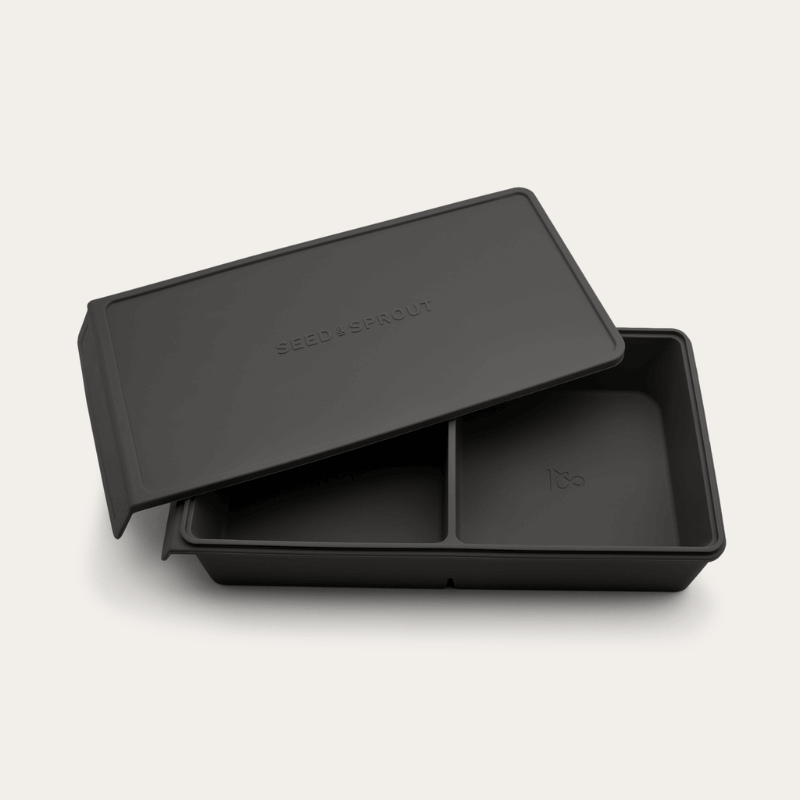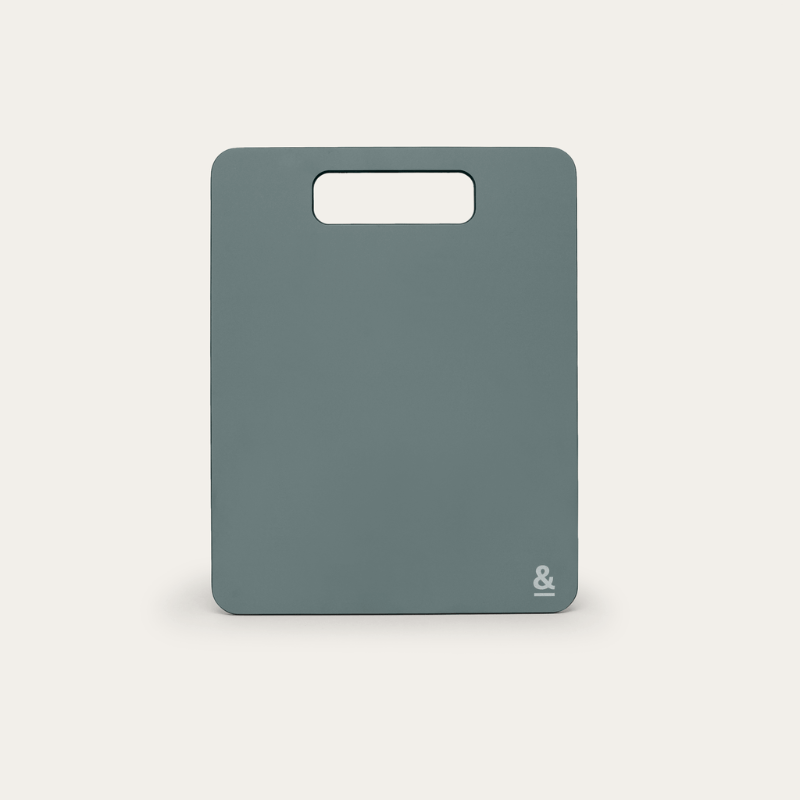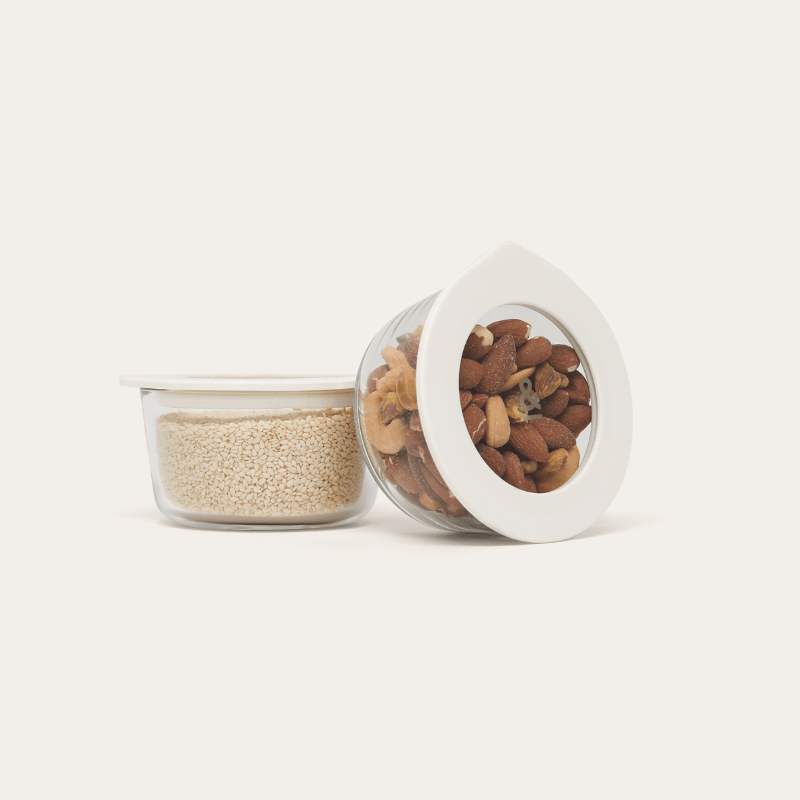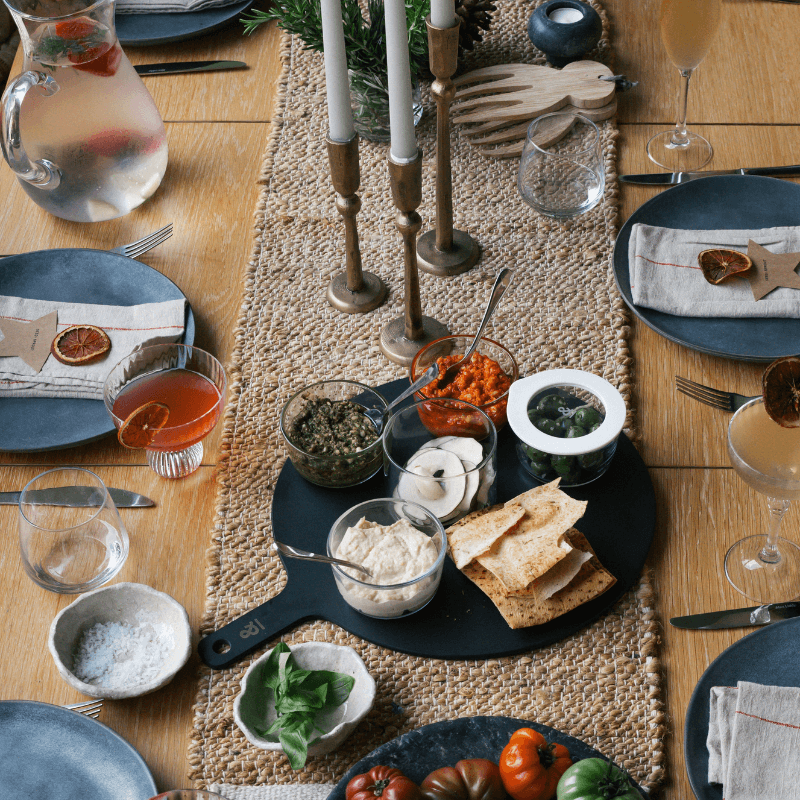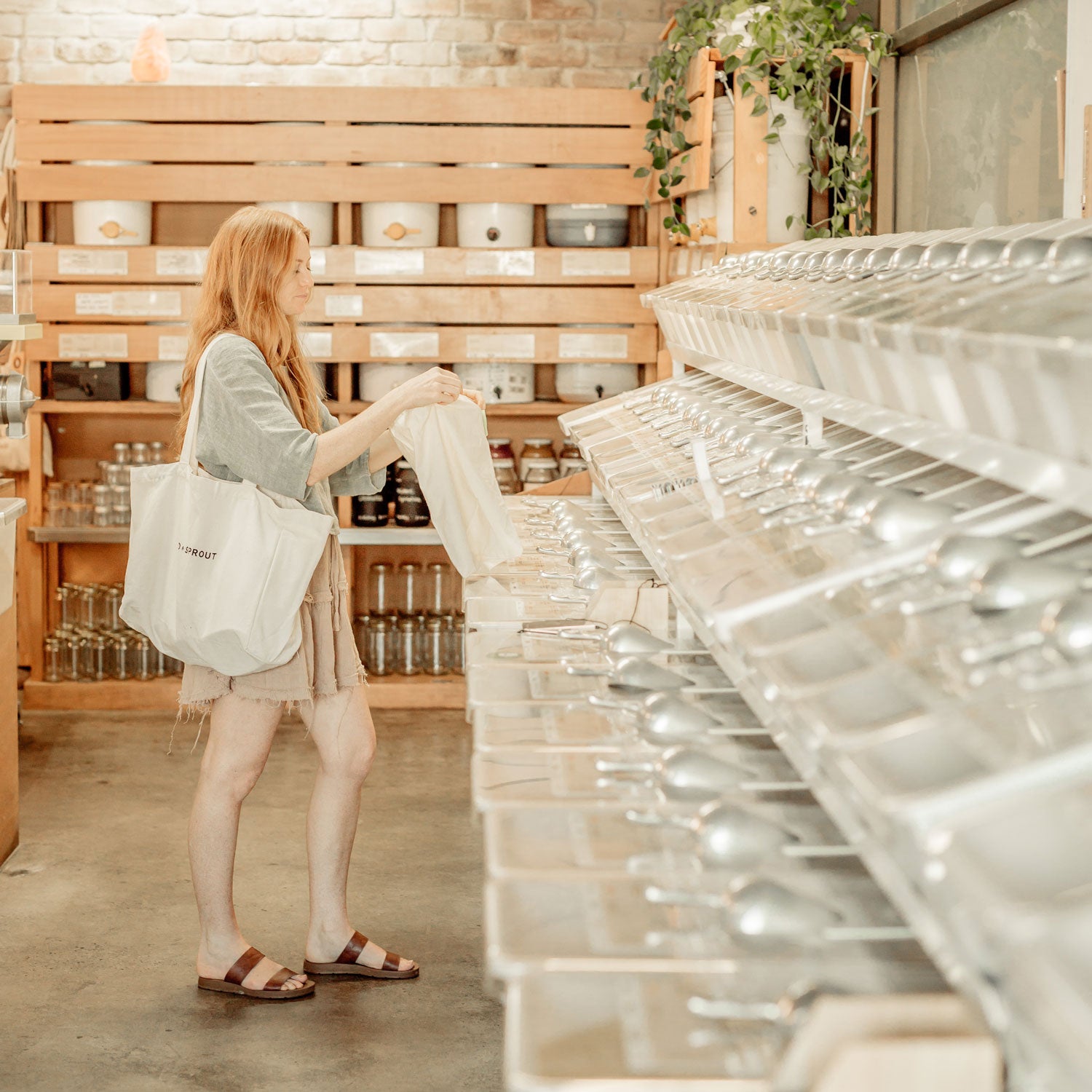
You've probably heard me raving about Julia from Simply Living Well at some stage, and if you haven't, well I have a big eco-crush on her! Julia is based in Chicago and is well known for her Instagram account @simply.living.well - where she shares how she lives a simple, slow, and sustainable life both in her home and with her children.
If you'd like to find out more about Julia, you can visit her website here or follow her on Instagram here. Julia has shared her wisdom with us on low-waste shopping and has some great tips on this below. Enjoy!
Written by @simply.living.well
Grocery shopping presents a significant opportunity for reducing waste. There are rolls of plastic bags waiting to be used in the produce and bulk shopping aisles, and the cashier almost always insists on bagging already-packaged meat, poultry, and fish in an extra thin plastic bag. And despite some cities and towns moving to ban plastic bags, many grocery stores still use them at checkout, often as the default option.
In the United States alone, 100 billion plastic bags are produced and used each year, and only one percent of those bags get properly recycled. Most items in a grocery store come in some form of disposable packaging, whether it be berry cartons, yogurt cups, or plastic shampoo and conditioner bottles. Everything is packaged for convenience – even vegetables come chopped, pre-washed, and packaged in plastic bags and shrink-wrapped containers. All this and more makes it very hard to avoid landfill waste, but with a bit of preparation, planning, and organisation, you can significantly reduce your shopping footprint.
Below are a few tips to support low-waste shopping. Please note that, due to the coronavirus pandemic, many grocery stores are prohibiting cloth bags, removing bulk bins, and relying heavily on disposable items and packaging, in part to protect the health and well-being of their employees and customers. You may need to wait until after the pandemic passes before putting some of these tips to use.
Invest in and shop with reusable cloth bags. Invest in reusable shopping, produce, and bulk bags. Mesh and cotton bags are ideal for shopping for fresh fruits, vegetables, and dried bulk foods. Unless your bags are extremely light-weight, they’ll add a few ounces to the overall weight of your purchase. To prevent paying extra for using your own bags, be sure to let the cashier know the bag’s “tare” (or, weight) when empty. This amount can be subtracted from the final weight at checkout. Although this might sound complicated, most commercial produce bags come with a label inside the seam that lists its tare.
Shop bulk bins for dried foods. Finding stores with bulk bins can be a challenge. In my experience, stores like Whole Foods, Earth Fare, Bulk Barn, and small, local independent food co-ops are not only likely to support zero-waste shopping, but they’re also likely to have well-stocked bulk bins. When possible, shop bulk bins to avoid unnecessary food packaging. Foods commonly available in bulk bins include grains, nuts, beans, seeds, cereals, pretzels, trail mix, dried fruits, and chocolate.
Eat real food. As the author Michael Pollan recommends, shop the peripheries of the supermarket and eat foods our great-grandmothers would have recognised. This is real food — typically better for your health and usually far away from the packaged and processed foods stocked in the middle aisles. Pollan also advises to “Eat food. Not too much. Mostly plants.” If you follow that rule, you’ll reduce household waste by buying produce that is fresh, unpackaged, and often seasonal and locally-sourced.
Buy unpackaged fruits and vegetables. Avoid produce packaged in single-use bags and cartons and opt instead for loose fruits and vegetables. This often results in buying and eating locally and seasonally, which reduces the energy waste associated with food production and transportation. If you run out of cloth produce bags, place produce loose in your cart. While this may not work for a pound of mushrooms, it’s certainly possible cantaloupe, broccoli, peppers, cucumbers, lettuce, oranges, and apples. In most cases, using individual plastic bags to shop for produce is a habit more than a necessity.
Use glass jars or other reusable containers when necessary. Use glass jars, stainless steel containers with lids, or Tupperware to shop for foods that can’t be carried in cloth bags. Glass jars and storage containers are a great way to shop for coffee, tea, cheese, olives, meat, poultry, fish, and nut butter. If you’re lucky, you may even have access to bulk items like vinegar, soy sauce, olive oil, laundry soap, shampoo, and conditioner. Before you fill your containers, take them to customer service and ask the clerk to pre-weigh or “tare” the container. They can either record the weight on the bottom of the container using wax crayons or you can record the weight in a notebook or the notes section of your phone (see below).
Record container weights and bulk item numbers on your phone. While shopping, record the tare of containers as well as bulk item price look-up (PLU) codes. For glass, aluminum, or Tupperware containers, you can use a wax pencil to write the tare and PLU directly on the container; for cloth bags, you can write the PLU in the notes section of your phone. If you become a regular zero-waste shopper, you’ll only have to record numbers once. You can have a running list of numbers of foods you often buy in bulk. You may even have them memorised after a few months.
Buy fresh baked goods using your own bag. Instead of buying packaged bread and pastries, buy them fresh from the bakery using a reusable cloth bread bag. If you don’t have a bread bag, a small clean pillowcase works well, too. You can either buy the bread whole or ask for it to be sliced.
Buy cheese from the cheese counter using your own container. Avoid pre-packaged cheese and instead shop at the grocery store’s cheese counter. Ask to have a wedge cut off a cheese wheel and placed directly in your reusable container. The cheese counter will have a scale so that someone can tare your container before weighing the cheese. H/she will give you a very sticky price sticker – if you don’t want to spend a lot of time washing and peeling it off the container, ask if you can carry it in your pocket and present it at checkout.
Buy olives from the olive bar using your own container. In recent years, several chain grocery stores have installed olive bars stocked with everything from cheese-filled peppers to pickled okra, grilled artichokes, cornichons, and garlic stuffed olives. Use your own container to shop at olive bars. Just tare your jar at customer service and then fill it up. There’s no need to write a PLU number, as most stores use a single PLU for foods bought at salad, hot, or olive bars.
Buy coffee fresh from the coffee bins using your own bag or glass jar. Skip buying coffee in plastic or paper bags and instead buy whole beans from the coffee counter. If you prefer ground coffee, there’s often a coffee grinder onsite that you can use to process them. In my experience, there isn’t a scale at the coffee counter, so you’ll need to tare your coffee jar at customer service ahead of time. I recommend using a glass jar, but a reusable cotton bag works fine too – you’ll just need to wash it afterward.
Buy meat using your own container. As with cheese, olives, and coffee, use your own container at the meat counter. Since there’s a scale at the counter, the butcher can tare your container before placing fish, chicken, or poultry inside of it. If you don’t want the price sticker placed on top of your container (they’re very sticky and hard to remove), ask the butcher to hand it to you so you can present it to the cashier at check out.
Buy unpackaged soap. Check the bath and body section of the grocery store to see if they sell bulk and/or unpackaged soap. Several large chain grocery stores sell unpackaged bars of soap. Some even sell liquid soap, shampoo, and conditioner in bulk. Bring your own tared glass jar for the liquid soaps and use a reusable cloth bag for bar soap.
If buying packaged food, avoid plastic, and opt for recyclable materials. In zero-waste circles, recycling is considered a last resort. If you must buy packaged foods, buy ones packaged in recyclable materials. Recycling paper, glass, and metal is a complete cycle, while plastic is generally not. The stark reality is that more than 90 percent of plastic goes straight to a landfill. The best one can hope for with the remaining 10 percent is that it gets downcycled or turned into low-quality items, such as doormats, textiles, and plastic lumber. After one round of being downcycled, these products usually end up in a landfill. Downcycling simply delays the process of plastic ending up buried in the ground.
Buy eco-friendly household goods. Buy toilet paper packaged in paper rather than plastic. If you can’t find it locally, consider buying it online and in bulk. Ditch paper towels and invest in reusable cloths instead. Instead of single-use items for baking, consider purchasing silicone baking sheets, sandwich bags, and muffin cups. Switch out plastic wrap and tinfoil for silicone wraps, beeswax wraps, or reusable glass containers. Use unwrapped bar soap for washing everything from dishes to hands. Unless you make your own dish or laundry detergent, consider buying detergents packaged in cardboard boxes rather than plastic. If you do buy plastic, buy the largest size.
Refuse a receipt or request a paperless copy. Refuse receipts by either asking that one not be printed or have it emailed to you, if possible. Not only does refusing receipts save paper and energy, but it also protects your health. According to Green America, 93 percent of paper receipts are coated in Bisphenol-A (BPA) or Bisphenol-S (BPS), and the total mass of BPA on a receipt is 250 to 1,000 times greater than the amount in BPS in a can of food or a plastic baby bottle.
Create a zero-waste shopping kit. Create a zero-waste shopping kit and keep it in your car or on a hook by the door. Include items such as a reusable shopping, produce, bulk, and bread bags, as well as glass jars, stainless steel storage containers, a reusable coffee mug, a reusable water bottle, cloth napkins, reusable cutlery, and a stainless steel straw.
Shop at stores that support zero-waste. Not everyone has access to stores that offer foods and goods in bulk. If you do have access, do your best to support them. Small, local, independent stores and cooperatives are often more flexible and willing to support shopping “out of the box,” for example by letting customers use their own containers. Farmers markets and CSAs are good options as well. And by shopping locally and seasonally, we also reduce invisible forms of waste, such as the energy spent on production, processing, and transportation.
Build relationships with grocers, farmers, and clerks. Michael Pollan calls this shaking the hand that feeds you. Whether you’re shopping at grocery stores or farmers markets, zero-waste food shopping presents a great opportunity to build relationships with grocers, farmers, and store clerks in your community. Depending on where you live, you could be the norm or the outlier when it comes to your specific shopping routine and style. If you are an outlier, you may have to explain why you want to tare your own jar or use your own container for cheese and pastries. If you can keep it light and friendly, you might be surprised by how willing people are to help you get what you want. As Daniele Varè said: “Diplomacy is the art of letting someone else have your way.”
